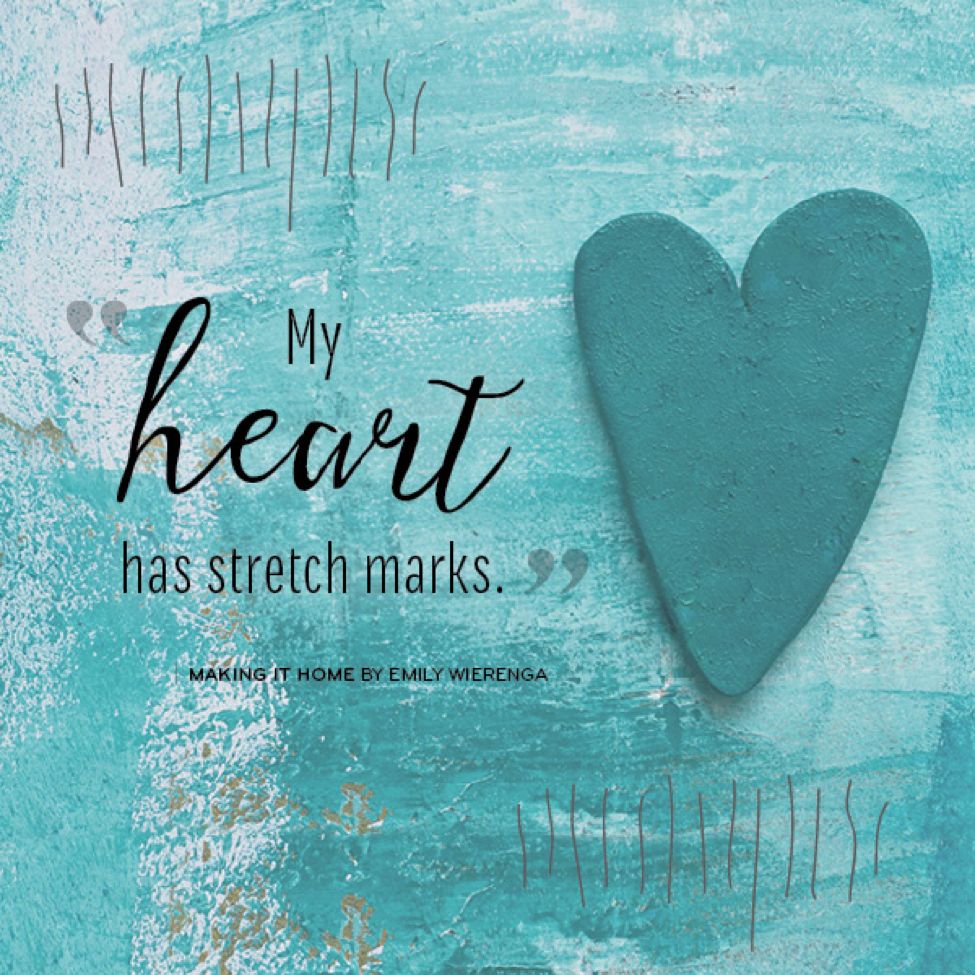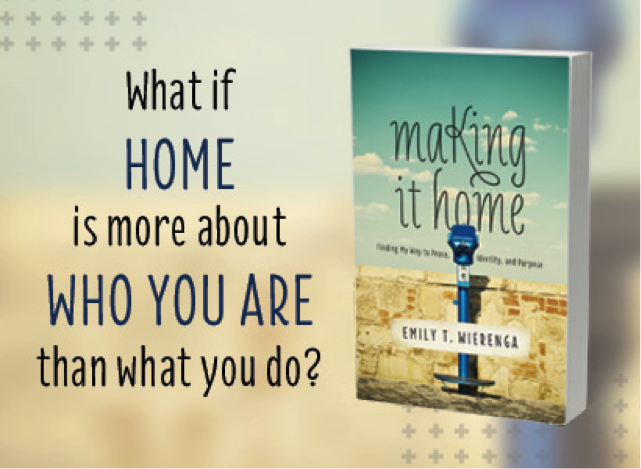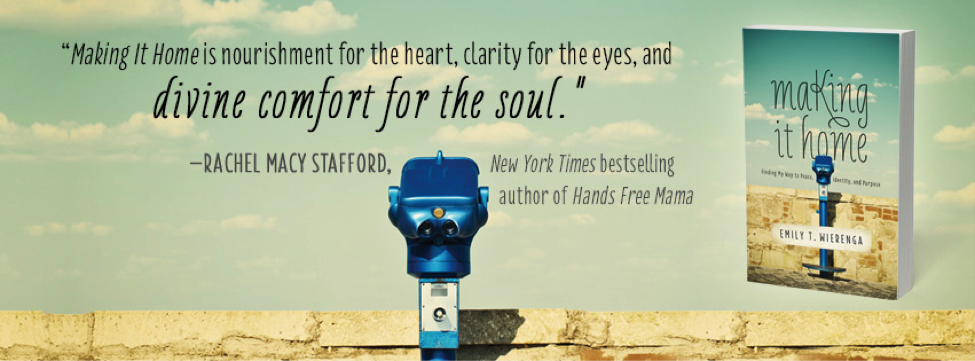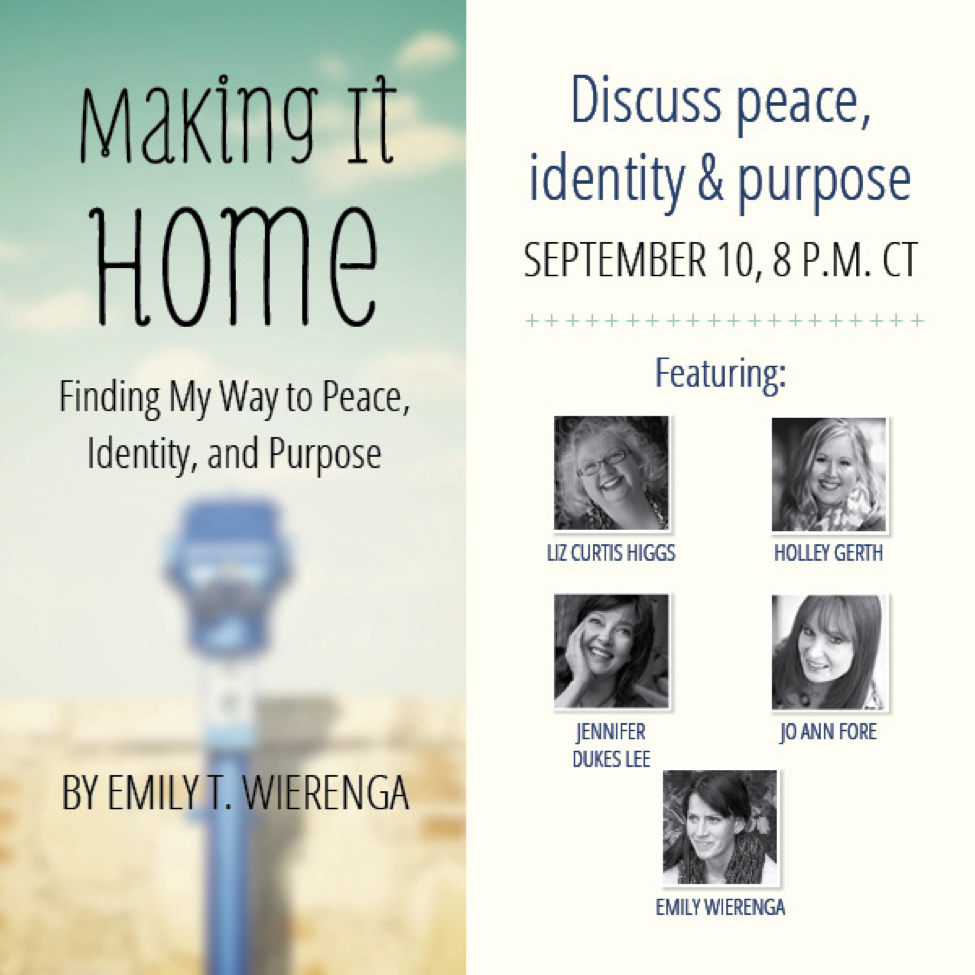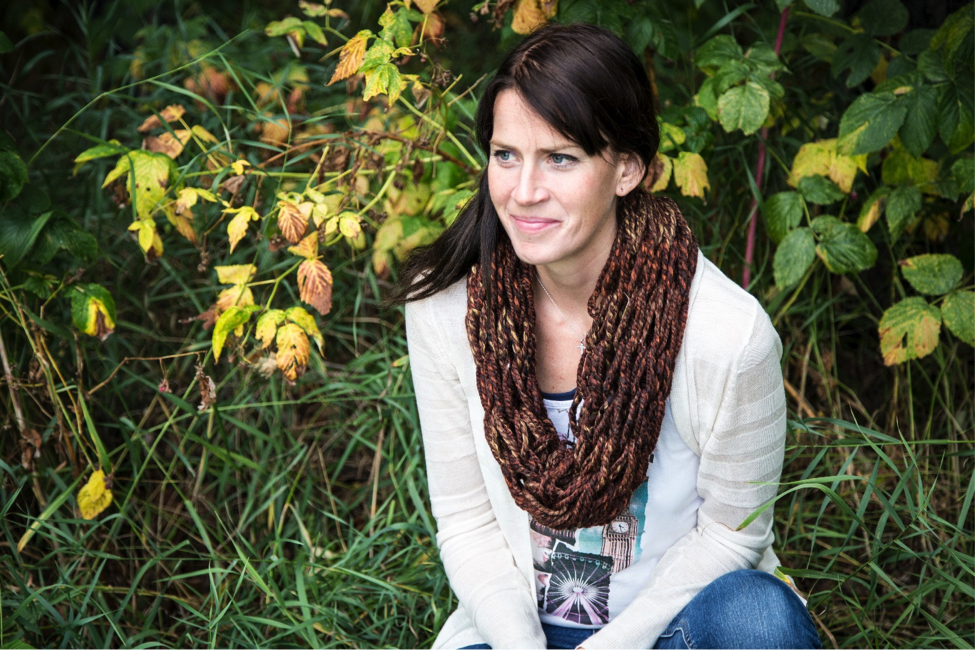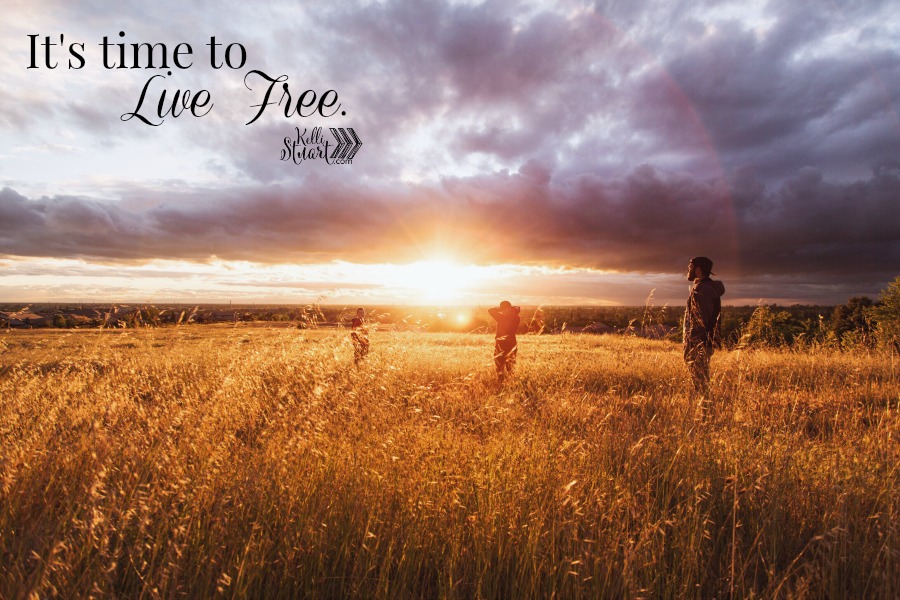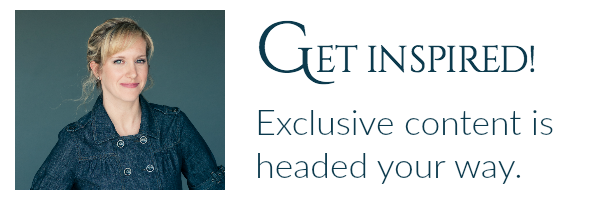Making it Home: A Guest Post by Emily Wierenga
I’m honored to share a post with you today written by my friend, Emily Wierenga. This is a story about her journey home, and it’s packed with beauty as her writing often is.
Emily is a poet, and a writer whom I deeply admire. I’m always awed by those who can string together sentences laced with a poetic glimpse into the world around them. It’s a depth of writing that I don’t possess. Sure, I manage to pen a few singing words here and there on occasion, but then my brain is all “Slow down there, Emily Dickenson! Why don’t you back that train up.”
At which point I am compelled to share such priceless gems as “For realz,” and “I can’t even!” Or my favorite, “Hot dang!”
And so it is that I’m thrilled to share Emily’s poetic prose with you today, and I’d love it if you hopped over to purchase her new book, Making it Home. The time spent reading Emily’s writing is always well spent.
Thank you, Emily, for the gift of your words!
I’m sitting and drinking my tea from the Korean mug, the house breathing around me. I’m reading Anne Lamott’s Traveling Mercies, but for a moment I fold the page, close the cover, lean back and remember Korean days: that tiny square apartment beside the fire station, stamps in our passports and as many countries as possible stitched onto my backpack.
I had studied the Lonely Planet guidebook and learned the language on tape in the months before Trent and I moved to Wonju, a city nestled in the mountains east of Seoul, and we taught English there, for a year, traveling to Japan and China and Thailand on the weekends, and now, I study cookbooks. I plan homeschool, and some days, like today, I stare out the window with mugs of tea and wonder how I got here.
And even as our house slumbers, it’s alive—with peanut-butter kisses on the windows and red wine stains on the carpet.
Home is Uncle John’s bathroom reader beside the toilet, the smell of a strawberry rhubarb candle a lady from church brought me when I miscarried. I light it every time I have a shower. It smells like mercy.
Home is the pile of books, Thomas the Train and Dora the Explorer and Winnie the Pooh, thrown from Kasher’s bed, because he always reads them before he goes to sleep and then he habitually tosses them. It’s the bear’s ear stuck in his mouth which he sucks. It’s the infant newness that still clings to his two-year-old cheek during sleep.
It’s the long lashes of Aiden, the green bunny in his arms and the flashlight by his hand. It’s his footy pajamas with the feet cut off because he’s three and a half and broken through the toes.
Beside me, a rough-hewn bookshelf made by Trenton out of barn boards. There’s the coffee table made from the same boards, the children’s chairs—Mickey, Minnie and Dora which are bent out of shape from Aiden and Kasher using them to wrestle.
Home is the pile of dirty clothes by Trenton’s side of the bed, the stack of books on either of our bedside tables—mine all literary and dark or devotional, and his historical or fantastical and us meeting in the middle under a feather down. It is the smell of baby powder fabric softener.
Home is me climbing the stairs to the kitchen, the crab apples we picked still piled in a bucket and the others, turning into apple leather in the oven. Bowls of apple juice waiting to be frozen on the counter and it’s Trenton emerging from the office and seeing me. Saying, “It feels like I haven’t seen you in forever,” when really it’s been 20 minutes.
It’s the smell of his skin when he pulls me in.
The house hums like it’s in love: the dryer’s tenor, the dishwasher’s soprano, and the refrigerator with a low bass.
My tea is gone. The sun setting fast as it does in the fall, like it can’t wait to tuck behind fleecy clouds and I hear my boys rising. Whimpering in their bunk-beds and Trent’s calling them. “Aiden, Kasher, come to Daddy,” and their feet on the rungs of the ladder and the carpet, running, pushing open our bedroom door and jumping into bed.
I place my mug in the sink and find my way down, past the creaky stairs, into that room, and the boys squeal when they see me and we all hold each other in the light of the afternoon.
And home is making me.
This excerpt is taken from Emily Wierenga’s new memoir (the sequel to ATLAS GIRL), Making It Home: Finding My Way to Peace, Identity and Purpose. Order HERE.
What does it mean to be a woman and to make a home? Does it mean homeschooling children or going to the office every day? Cooking gourmet meals and making Pinterest-worthy home décor? In Making It Home: Finding My Way to Peace, Identity, and Purpose, author and blogger Emily Wierenga takes readers on an unconventional journey through marriage, miscarriage, foster parenting and the daily struggle of longing to be known, inviting them into a quest for identity in the midst of life’s daily interruptions. Get your copy HERE. Proceeds benefit Emily’s non-profit, The Lulu Tree.
Get FREE downloadable chapters from Making It Home HERE.
Sign up for the FREE Making It Home webcast featuring Liz Curtis Higgs, Holley Gerth, Jennifer Dukes Lee and Jo Ann Fore (with Emily Wierenga as host), 8 pm CT on September 10, 2015, HERE. Once you sign up you’ll be automatically entered for a giveaway of each of the author’s books!
Emily T. Wierenga is an award-winning journalist, columnist, artist, author, founder of The Lulu Tree and blogger at www.emilywierenga.com. Her work has appeared in many publications, including Relevant, Charisma, Desiring God, The Gospel Coalition, Christianity Today, Dayspring’s (in)courage and Focus on the Family. She is the author of six books including the travel memoir Atlas Girl and speaks regularly about her journey with anorexia. She lives in Alberta, Canada, with her husband, Trenton, and their children. For more info, please visit www.emilywierenga.com. Find her on Twitter or Facebook.

